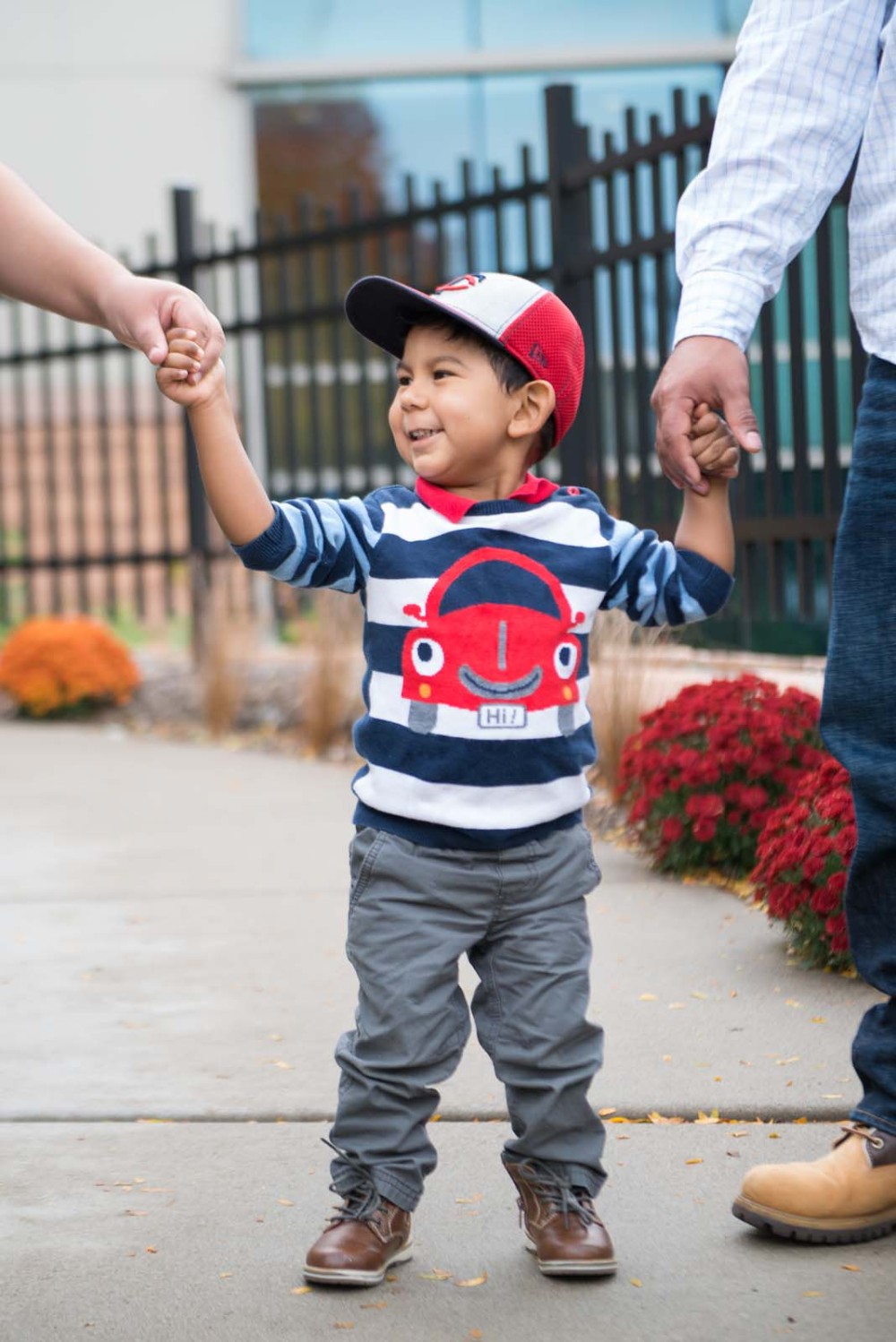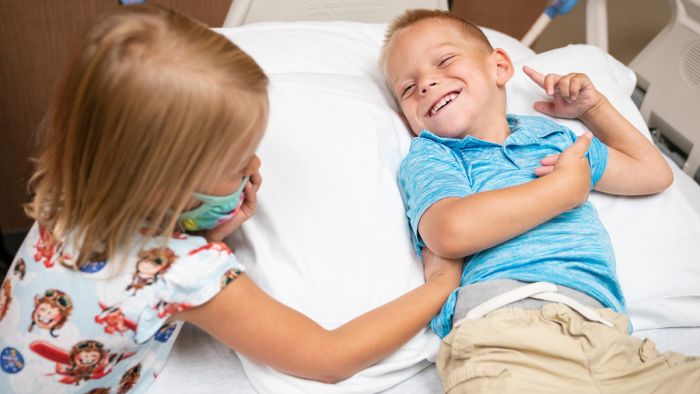Receiving a diagnosis of cerebral palsy (CP) for your child can be overwhelming. At the same time, having an answer can bring a sense of relief.
With resources and educational tools available at your fingertips, the providers at Gillette are here to work with parents, caregivers and patients, every step of the way. This includes providing parents with the assistance they need to explain their child’s diagnosis to family members.
What is Cerebral Palsy?
“Cerebral palsy” is a term many people have heard, but it isn't just one condition.
CP describes a group of disorders that affect a person’s ability to move and maintain balance and posture. CP is caused by a brain injury or atypical brain development that happens around the time of birth or early in life. Each child faces a different set of challenges, but it doesn’t mean they can’t grow up to be happy and healthy. This is the most important lesson for loved ones and family members to learn.
The best way to start these conversations is by setting a positive tone and being honest. If presented in a negative light, it can lead family members to be too nervous to ask questions or offer help. Instead, sitting down both one-on-one and in a group allows everyone to feel comfortable. Siblings tend to benefit the most from individual conversations. Don’t shy away from tough questions. Instead, answer them the best way you can, and if needed, enlist the help of your child’s medical provider.
Continuing, Ongoing Conversation Is Key
Since this is a life-long journey, this won’t be a one-time conversation. Furthermore, it’s important to remember that support doesn’t just come from inside your household. Extended family members including cousins, aunts and uncles have proven to be some of the best people to lean on – which means they need education on CP, too. Like your immediate family, identifying ways in which each person can help can make them feel included.
As parents, siblings, grandparents and friends, we are here to encourage both each other and the child in any way we can. That doesn’t mean it can’t get stressful or frustrating. Being able to confide in someone you trust can take some of the weight off of your shoulders. Communication and active involvement can help during tense periods. In working together, everyone can feel the support they need and deserve.
Different Things Work For Different Children
Every child needs support, but some children need it in different ways. Just ask Matthew Schlafly. Diagnosed with spastic diplegic CP at 2 years old, his legs weren’t as strong as they should be. Matthew had several surgeries and went through rehabilitation over the course of a decade.
While the providers at Gillette were a wonderful team to lean on, he needed support elsewhere, too. Falling in love with personal training, he has dedicated his life to the gym. His coworkers and clients had to learn to encourage him when needed, just like his healthcare team. Something that, once again, is best done through open communication.
Kids like Harrison Clausnitzer, a 5-year-old who also is diagnosed with CP, show what is possible when you have a strong support system. “I feel like Gillette is part of our family,” Megan, his mother, states.
By asking questions and being involved, Harrison’s parents better understand how to help him. Harrison regularly sees pediatric neurologist, Tim Feyma, MD, and pediatric rehabilitation medicine specialist, Nanette Aldahondo, MD. He also has sessions with Gillette occupational, physical and speech therapists. “We really value our long-term relationship with Gillette,” Megan says.
Mateo Arcos is another Gillette patient who doesn’t let CP stop him. While he was also diagnosed with epilepsy and has been treated for infantile spasms, he is walking, talking and laughing. Now 7 years old, he has two younger siblings that he adores.
Between his own therapy appointments and spending time with his family, he is a prime example of what is possible.

Working Together Is The Best Way To Move Forward
Whether it is taking a child to a doctor’s appointment or stopping by for a quick chat, family members can make an enormous impact on the lives of those who have CP. Continue to have open conversations and lean on each other when you need extra support.
Gillette Children’s is here to help, too. At Gillette you’ll find a broad range of physicians and other health care professionals who work together to make sure you and your family have the support you need. Explore our cerebral palsy diagnosis and treatment options.
 Home Page
Home Page

